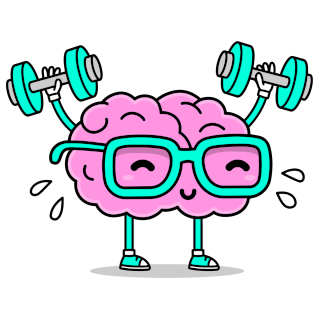|
|
|
|
presentation AI and Consciousness Workshop "Can we create a conscious artificial intelligence?" This is the central question of the "Artificial Intelligence and Consciousness" workshop, organized by Atelier 4 – Cognitive Science and Artificial Intelligence of Coggames, taking place on June 12–13 at PSL in Paris. The goal of this event is to foster interdisciplinary dialogue on consciousness, bridging cognitive science, neuroscience, artificial intelligence, and developmental robotics. Some of the key questions we’ll explore include:
International experts from diverse disciplines (science, technology, art) will share their perspectives, including:
Interactivity in Machine Learning Baptiste Caramiaux is a CNRS researcher, affiliated with the Institute for Intelligent Systems and Robotics (ISIR) at Sorbonne Université in Paris. He conducts research in Human-Computer Interaction. He is particularly interested in the uses of machine learning in creative and cultural fields, and in ways of improving people's ability to act and understand these technologies. Alongside his research activities, he has been a scientific expert for the European Commission on AI in the creative sectors. He is a contributing member of the Fronte Vaccuo artistic collective and a laureate of Microsoft Research's AI and Society program. He holds a PhD in computer music from IRCAM and a habilitation to direct research from Université Paris-Saclay.
Artificial Intelligence, Fractured Selfhood, and Disembodied Being
The Global Latent Workspace: a model of cognition with AI applications Rufin VanRullen is a CNRS Research Director at CerCo (Toulouse) and holds an AI Research Chair at ANITI (Artificial and Natural Intelligence Toulouse Institute). He leads the ERC Advanced GLoW project, exploring novel deep-learning architectures based on the Global Workspace Theory. He has published more than 150 scientific papers, including influential articles on neural coding, object recognition, feed-forward vs. feedback processes, and attention.
Self-Awareness: A constructivist Approach Raja Chatila is Professor Emeritus at Sorbonne University in Paris, France, where he was director of the Institute of Intelligent Systems and Robotics (2014-2018) and of the SMART Laboratory of Excellence on Human-Machine Interactions (2012-2020). He contributes in several fields of Artificial Intelligence and Robotics including perception, decision-making and task planning, human-robot interaction, Machine Learning, XAI, cognitive architectures, as well as in technology ethics. He is author of over 180 publications in these topics. He is IEEE Fellow and recipient of the IEEE Robotics and Automation Society Pioneer Award.
The neural basis of conscious access in humans, beyond decision-making: an update to the global workspace model
In this presentation I will sketch out the current state of the art regarding the neural correlates of conscious processing of an external stimulus in humans, as well as current challenges. While most of our knowledge relies on situations where participants have to report whether they have perceived the stimulus or not, the main current challenge is to study the mechanisms of conscious processing in the general case, in the absence of report or decision to make. I will show experimental studies that help us approach such general mechanisms of conscious processing. I will propose an update of the global workspace model of consciousness that can accommodate these new results, and tackle the mechanisms of conscious processing in the general case. Finally I will discuss how this cognitive neuroscience perspective can inform our questionings about consciousness in AI.
Claire Sergent is a Professor of Cognitive Neurosciences at Université Paris Cité / CNRS, in the Integrative Neuroscience and Cognition Center. Her central topic of research relates to the psychological and neural mechanisms of conscious access, notably in vision and audition. She leads the ERC CONSCIOUSBRAIN project, that aims at characterising the neural dynamics associated with conscious processing in humans, and using this knowledge to design diagnostic tools for patients with disorders of consciousness (e.g. unresponsive wakefulness or minimal consciousness syndroms). She uses experimental psychology, human electrophysiology (electroencephalography, magnetoencephalography, intracranial recordings) and functional MRI as her main investigation tools. She is a co-director of Paris’ Master Program in Cognitive Sciences.
Location: Université Paris Sciences et Lettres - Amphithéâtre Amyot - 3 rue Amyot - 75005 PARIS Dates: ℹ️ Free event — please register to help with organization 🍽️ Please note that the dinner on June 12 is not covered by the event. Participants who wish to join are welcome, but will be expected to cover the cost of their own meal. If you wish to join us, please mention it in the registration form! ___________________
This event is organized jointly by the the "AI and Cognitive Sciences" working group of the national association CogGames,
Laura Cohen, Alexandre Pitti, Nicolas Spatola, Rufin Vanrullen and Samuel Bianchini from ENSAD, member of PEPR O2R
and sponsored by the DIM C-Brain, the PEPR Organic Robotics, and ETIS lab. This is the fourth event of this type by the ETIS laboratory. The last two events were in 2019 (https://neurodevrob.sciencesconf.org/) and 2023 (https://neurodevrob23.sciencesconf.org/) on the themes of dynamic systems and language, development, neurosciences and robotics. Enregistrer
Enregistrer
Enregistrer
Enregistrer
Enregistrer
Enregistrer
Enregistrer
Enregistrer
Enregistrer
Enregistrer
Enregistrer
Enregistrer
Enregistrer
Enregistrer
Enregistrer
Enregistrer
Enregistrer
Enregistrer
Enregistrer
Enregistrer
Enregistrer
Enregistrer
Enregistrer
Enregistrer
Enregistrer
Enregistrer
Enregistrer
Enregistrer
Enregistrer
Enregistrer
Enregistrer
Enregistrer
Enregistrer
Enregistrer
Enregistrer
Enregistrer
Enregistrer sponsors
|



